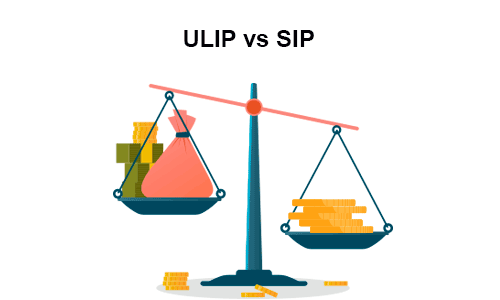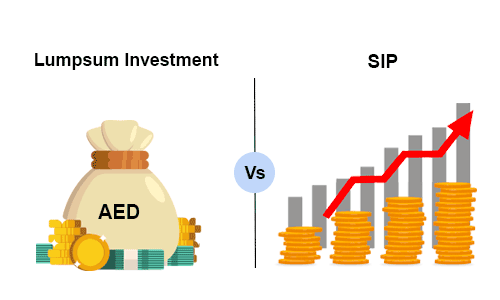Unlocking the Mysteries of NRI Mutual Funds
Mutual funds for NRIs might just be the key to your financial success if you're seeking lucrative returns with calculated risks. However, as with most investment instruments, it’s necessary to get a grasp on the fundamentals, functioning, benefits, and other aspects of mutual funds.
Table of Content
Before diving into the enticing world of NRI mutual funds, let's unravel the basics and discover what they truly are.
What Makes a Mutual Fund Tick?
Imagine a potluck where each guest brings a dish. In mutual funds, investors are those guests, pooling their money to create a diversified portfolio. This potluck of funds is then entrusted to a professional money manager, whose mission is to strategically invest in a variety of assets, such as stocks, bonds, and money market instruments.
The goal? To generate capital gains and make your investment grow.
Unlike buying individual shares, when you invest in a mutual fund for NRI, you own a slice of the entire portfolio. To determine the value of your share, mutual funds have a Net Asset Value Per Share (NAVPS), which settles at the end of each trading day. This means you don't have to worry about market fluctuations during the day; it's all sorted out when the dust settles.
Cracking the Code: Taxation on NRI Mutual Funds in India
Now that we've dipped our toes into the mutual fund pool, let's explore the tax implications for our Indian investors. In India, the Securities and Exchange Board of India (SEBI) sets the guidelines for taxing mutual funds for NRIs.
There are two main types of returns on mutual funds: dividends and capital gains.
- Dividends are your share of the profits when a company decides to distribute them among investors. They're added to your taxable income and subjected to your applicable income tax slab rate. It's worth noting that before the Union Budget 2020, dividends were tax-free, as companies paid the Dividend Distribution Tax (DDT) on dividends exceeding Rs 10 lakh per financial year.
- Capital gains, on the other hand, occur when you sell your mutual fund units at a higher price than what you initially paid. The taxation of capital gains varies based on the holding period and the type of mutual fund.
Different Types, Different Taxation
Let's take a closer look at the types of NRI mutual funds and their taxation in India -
- Equity Funds: If held for less than 12 months, they're considered short-term. In this case, the gains are taxed at a rate of 15%. Holding these funds for 12 months or longer classifies them as long-term, subjecting the gains to a tax rate of 10% if they exceed Rs 1 lakh.
- Debt Funds and Hybrid Debt-Oriented Funds: When held for less than 36 months, they fall into the short-term category, with gains taxed at the applicable income tax slab rate. Holding them for 36 months or longer qualifies them as long-term, with a tax rate of 20% (with indexation) on the gains.
- Hybrid Equity-Oriented Funds: These funds are treated similarly to equity funds for taxation purposes.
Making Waves: Mutual Funds for NRIs
Can non-resident Indians (NRIs) ride the mutual fund wave? Absolutely! NRIs can invest in mutual funds in India by opening an NRE (Non-Resident External), NRO (Non-Resident Ordinary), or FCNR (Foreign Currency Non-Resident) account.
These accounts are necessary because NRIs cannot invest with a regular savings account under the Foreign Exchange Management Act (FEMA), and they must invest in Indian Rupees.
However, NRIs living in the US and Canada may encounter some obstacles due to the Foreign Account Tax Compliance Act (FATCA), which requires tedious paperwork. But fear not, for there are excellent mutual fund options available to NRIs.
Here are a few noteworthy ones -
- SBI Equity Fund
- ICICI Prudential Credit Risk Fund
- Parag Parikh Long Term Equity Fund
Investment Avenues for NRIs
The list doesn't end there! NRIs can also explore other mutual funds in India such as -
- L&T Arbitrage Opportunities Fund
- L&T Banking and PSU Debt Fund
- Aditya Birla Sun Life Liquid Fund
- Aditya Birla Sun Life Corporate Bond Fund
- UTI Liquid Cash Plan
- UTI Flexi Cap Fund
- SBI Magnum Medium Duration Fund
- SBI Equity Hybrid Fund
It's important to exercise personal discretion when choosing a fund. While these options have shown promise, thorough research is recommended.
Charting Your Course: How to Invest as an NRI
Another question for us - Can NRIs invest in mutual funds online? The answer is a resounding yes! NRIs can opt for online investment through various channels. But before you dive in, you'll require an NRO, NRE, or FCNR account.
Once you've got the account sorted, you have two methods to kickstart your investment journey:
Self or Direct Method
With this approach, you become the captain of your ship, investing directly in NRI mutual funds without involving a third-party agent. This hands-on approach saves you from brokerage fees, provided you feel confident making investment decisions.
Remember to complete your KYC (Know Your Customer) process here, which involves submitting relevant documents such as a passport, proof of residence, PAN card, and more. NRIs can complete the KYC process by visiting the Indian Embassy in their country of residence.
Don't forget to specify whether your account is repatriable or not during the KYC process.
Power of Attorney Method
If you prefer a hands-off approach, you can appoint a professional investor to manage your funds. This investor, often working for a company, will be responsible for making investment decisions on your behalf. However, they're not liable for any losses you may incur.
Under the Power of Attorney method, both the NRI investor and the PoA holders must sign the KYC documents.
While the option for online investment is available, not all fund houses facilitate it. Aditya Birla Sun Life Mutual Fund, ICICI Prudential Mutual Fund, and SBI Mutual Fund, for instance, only allow Canada and US-based NRIs to transact offline. If you choose to invest with a cheque or draft, you'll need to attach a Foreign Inward Remittance Certificate (FIRC) to verify the source of funds.
Seize the Opportunity: SIP Investment for NRIs
Systematic Investment Plans (SIPs) present another popular investment option for NRIs. These plans allow you to invest a fixed amount at regular intervals and enable disciplined and hassle-free investments. SIPs offer a convenient way to navigate the mutual fund landscape, irrespective of your residency status.
Cracking the Code: NRI Mutual Funds Taxation
The taxation rules for NRIs and residents of India are similar. For equity mutual funds, investments held for one year or less are subject to a 15% tax rate on short-term capital gains. Long-term investments in equity mutual funds for NRIs are taxed at a rate of 10% on capital gains exceeding Rs 1 lakh.
Non-equity schemes, including debt funds, are taxed differently. Short-term capital gains are taxed at a rate of 30%, while long-term capital gains are taxed at a rate of 20% with indexation.
It's important to note that if your country of residence hasn't signed a Double Tax Avoidance Agreement (DTAA) with India, you may be liable to pay taxes in both countries. However, India has signed the DTAA with the USA, which helps NRIs avoid double taxation on mutual funds in India.
Navigating the Regulations: Investing in Mutual Funds for NRIs
Just like residents of India, NRIs must also adhere to certain regulations and steps before investing in mutual funds -
- KYC: Know-Your-Customer (KYC) norms are mandatory for investing in mutual funds. As an NRI, you will be required to submit a copy of your passport which should include the pages containing your name, address, age, photo, and other relevant information. Additionally, residential proof is required. Keep in mind that some fund houses may not accept e-KYC and require you to complete the verification process in person.
- Remittance Certificate: If you make payments to the fund house via a cheque or draft, you'll need to attach a Foreign Inward Remittance Certificate (FIRC) or a letter from the bank to confirm the source of funds.
- Redemption: After redeeming your investment and generating gains, the Asset Management Company (AMC) will credit the amount to your account, minus any applicable taxes.
Alternatively, they may issue a cheque directly to you. Some AMCs also provide the option to credit the funds directly to your NRO or NRE account. However, if you opt for a non-repatriable investment, the redeemed amount can only be credited to your NRO account.
Unleash the Potential: Embrace NRI Mutual Funds for Prosperity
Mutual funds hold incredible potential for both residents of India and NRIs. By pooling your resources with other investors, you can access a diverse range of investment opportunities and maximise your returns. However, whether you choose equity funds, debt funds, or hybrid funds, understanding the taxation and regulations is necessary in order to make informed decisions.
So don't let mutual funds for NRIs remain a mystery. Dive in, explore the options, and embark on a path to financial prosperity. With the right knowledge and a calculated approach, mutual funds can be your passport to long-term wealth creation.
Policybazaar Insurance UAE – Helping you navigate the wilderness of the insurance world!
More From Investment
- Recents Articles
- Popular Articles





.jpg)












.jpg)
.jpg)
















